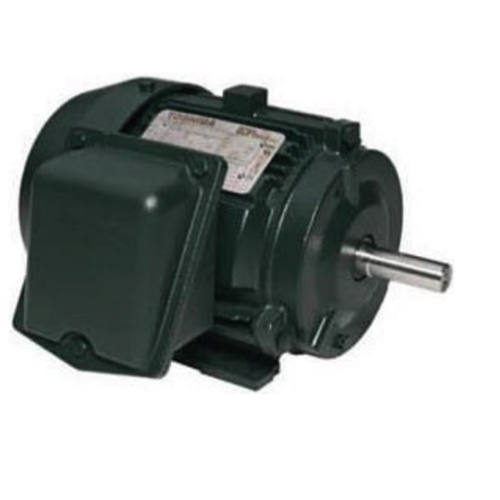Toshiba Motors

Toshiba electric motors are engineered to deliver dependable power, efficiency, and long-term reliability across demanding industrial environments. Designed for applications in oil and gas, manufacturing, power generation, and water treatment, Toshiba motors are built to perform consistently under high loads and challenging operating conditions. As a trusted Toshiba industrial distributor, RSP Supply provides access to a broad range of motor solutions designed for critical operations.
RSP Supply carries a complete lineup of Toshiba induction motor and starters, medium-voltage motors, variable frequency drives, and motor control solutions. Toshiba starters and motor control products are designed to integrate seamlessly with Toshiba motors, providing smooth starting, protection, and precise control. Manufactured through a fully integrated production process, each Toshiba motor is rigorously tested to ensure durability, energy efficiency, and reduced downtime in industrial systems where performance matters most.
FAQs
Q: What types of Toshiba electric motors are available?
Toshiba offers a wide range of AC and DC electric motors, including NEMA Premium, explosion-proof, severe-duty, and high-efficiency designs. These Toshiba electric motors are built for reliability and consistent performance in industrial environments.
Q: What is a Toshiba induction motor and where is it commonly used?
A Toshiba induction motor is an AC motor designed for continuous-duty industrial applications. These motors are commonly used in pumps, compressors, conveyors, and heavy machinery where durability and efficiency are critical.
Q: Does Toshiba offer starters for industrial motor applications?
Yes, Toshiba starters are available to support safe motor starting, overload protection, and system integration. Toshiba starters are commonly paired with Toshiba induction motor systems to provide reliable motor control and protection.
Q: What industries rely on Toshiba motors and starters?
Toshiba motors and starters are used in industries such as oil and gas, manufacturing, mining, water and wastewater treatment, and power generation where uptime and operational reliability are essential.
Q: Is RSP Supply a Toshiba industrial distributor?
Yes, RSP Supply is a trusted Toshiba industrial distributor, offering a wide selection of Toshiba motors, starters, and drives along with knowledgeable technical support to help match products to application requirements.
Why Buy Toshiba Motors from RSP Supply
RSP Supply is a reliable source for Toshiba electric motors, Toshiba induction motor and starters, and related motor control products. Customers rely on RSP Supply for product availability, application expertise, and dependable service when sourcing critical power and motion solutions. Our Toshiba motor offerings are selected to support long-term performance, energy efficiency, and operational consistency across a wide range of industrial applications.

